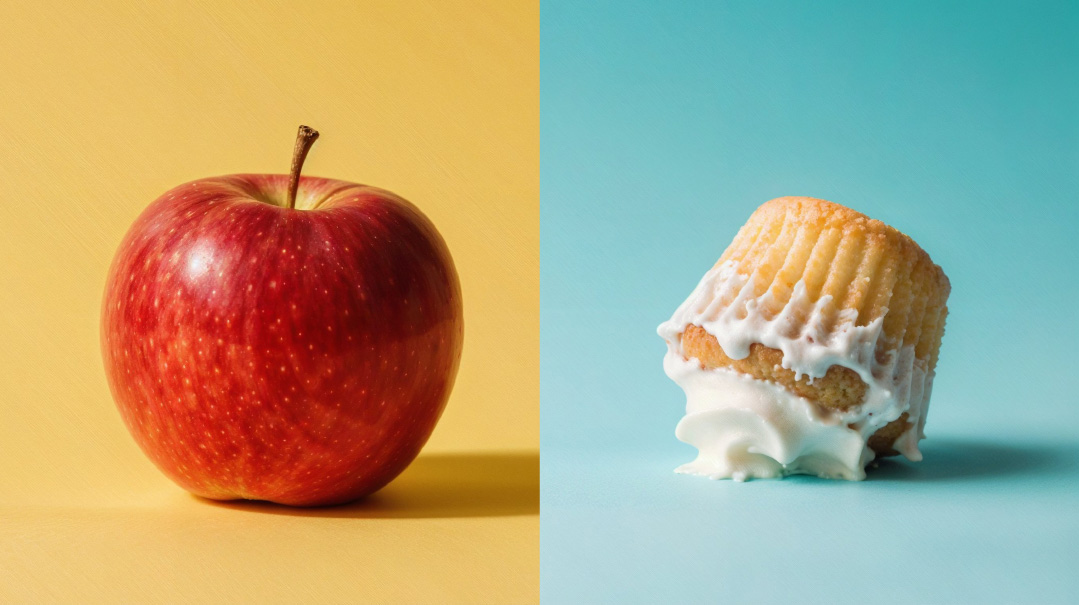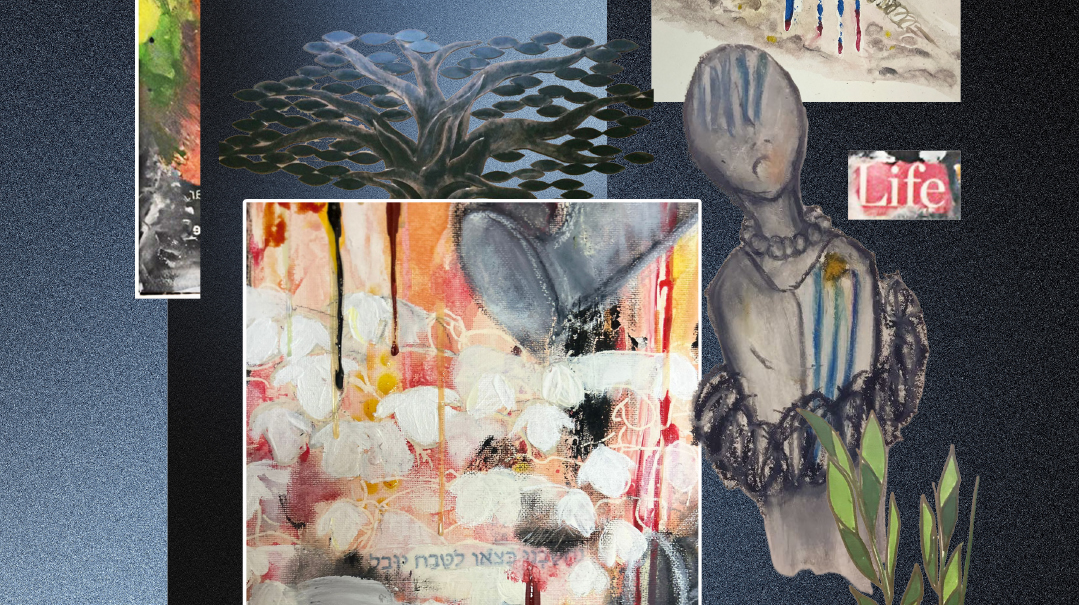Rebbetzin Judith Gerzi

Judith Gerzi’s soul music blends her Sephardic roots with chassidic notes

Early Ache
Growing up frum in a very musical family in Edgware, London, before it was the religious hub it is today, I was the quiet one, the one who was too shy to sing loudly. My mother sang opera, my grandfather and brother are chazzanim, but though I loved music, I had no confidence. As a teen, I finally started to come out of my shell, only to realize that there were absolutely no venues for a frum woman to sing.
When I married my husband, who plays too many musical instruments to count, I loved that our home was full of music, but it was intensely painful for me that I couldn’t find an avenue to share the music within me.
Making the Move
My husband had always wanted to make aliyah, while I was hesitant. One year, we visited Israel over Pesach, and my heart was touched. Driving home from work one day shortly after, I felt an aching emptiness, and when I reached home I announced to my husband, “That’s it, we’re moving.”
Ironically — since these things can’t ever be in sync — he then said, “Wait, what?” In his work as a lifestyle consultant and music instructor, he’d built relationships with towering mentors and would be giving up a lot to start fresh in a new country.
Along with the complex logistics of a move, we were also struggling with some baffling health complications I had following the birth of my oldest. No one seemed to be able to get to the bottom of my problems, and my dream of raising a large family seemed to be evaporating. I davened for a second child, but couldn’t see any hope on the horizon.
“You’ll see,” my cousin and close friend told me. “When you come, Hashem will do great things for you.”
She was right.
Starting Afresh
Looking for the right place to plant our family, and to actualize our dream of founding our own chassidishe shtibel, we moved to the Ramat Shilo neighborhood of Beit Shemesh.
My husband founded Beis Dovid Pilzno, based on the principles of avodah that he’d received from his primary mentor, the Pilzno Rebbe, and his many other teachers from across the spectrum of Jewish thought.
It started in our dining room, seating 30, then moved downstairs to the basement, though congregants still made themselves at home in our house. When one too many strangers wandered through my home looking for the rabbi, we started drawing boundaries, and have reached a healthy balance.
Like our own family, which has Ashkenazic and Sephardic roots with chassidic practice, our shul comprises a colorful cross section of Jews.
One Friday night, I stood on my porch looking out as the men drifted out of the shul after davening. One wore a shtreimel, another had a mohawk, one had a black velvet kippah, and the fourth was bare-headed, and they were all schmoozing. Now we’ve arrived, I thought to myself. This is a kehillah!
A Woman on a Mission
Slowly, we settled into our new community. I did a little of this and a little of that; I had a gan at home, then I dabbled in catering, and ultimately started the sheitel salon I still run. I learned more with each new venture, but was never sure I’d found my true calling. Knowing how badly I wanted to sing, my husband called a local rebbetzin and got me a gig at a small shul function. I was terrified — remember, I was the shy one, with stage fright — and I was physically sick the entire day of the performance. My Hebrew was terrible, and I hadn’t yet written any of my own compositions, so I sang some old classics.
When I finished, a woman came up to me crying, and I thought, Oh no, was I that bad? The woman explained that she was suffering from a variety of tzaros, and, in her pain, had given up on davening. The emotion in my singing had unlocked something within her, and she’d davened while I sang.
Having not only survived my first performance, but even gotten powerful feedback, I realized how much I wanted to do this. Another push forward came when our rebbe, the Biala Rebbe, gave me a brachah and encouraged me to use my talents to promote achdus.
Things crystallized for me after the birth of my third child. After coming home from the hospital, I felt great. Though my husband tried convincing me to take it easy, I distinctly remember baking cookies while my husband delivered a shiur to 20 men in the dining room.
That night, I awoke with agonizing back pain and difficulty breathing. I’m usually the one who pooh-poohs everything — I have back pain? No big deal! So I’m having trouble breathing? It’ll be fine! Fortunately, by the time I started losing consiousness, my husband realized this was a big deal and rushed me to the hospital. He waited outside with our newborn, so I was alone, in pain, and struggling to breathe, while they prepped me for a CT scan. That’s when it really hit me that this was serious. My mind raced with desperate thoughts: What would happen to my kids after I was gone? How quickly would my husband remarry — and realize that his new wife was far superior to the previous model?
In the midst of my panic, I received a completely unexpected gift. Total calm washed over me, and I heard the words “gam zu l’tovah” with a resounding clarity. I knew everything would be all right. Even though at that time I still experienced paralyzing stage fright, I somehow had a vision of myself in front of an audience of thousands, sharing a message of achdus. Hashem, I’m not ready! I thought. I’m only 26, I haven’t done it yet. I still need to do this.
B’chasdei Hashem, the medical team was able to diagnose my life-threatening pulmonary embolism, and though it was a long road, eventually I recuperated. The clarity I received then stayed with me: if Hashem gives you a talent, you need to take advantage of it and use it. You never know when your last moment will be, when it may, chas v’shalom, be too late.
Soul Singer
Sometime after, I sang in a women’s talent show at a tzedakah event. For some reason, people thought I was the professional there, and I started getting a trickle of gig offers, and building a name. I pretended to be as confident as they seemed to think I was, as if I actually knew what I was doing on stage.
The singing took on a life of its own, and I taught myself as I went along, constantly listening, critiquing, and upping my game. I hired a wonderful voice coach who taught me how to warm up. Until then, my throat was sore after just one song; now I can sing for hours.
My style isn’t what most people expect from a chassidish rebbetzin — it’s best characterized as soul or jazz. I couldn’t find anyone to write the songs I needed, and for years couldn’t find the inspiration I needed, either.
My first song, “Hushaby,” was eventually inspired by my struggles to build a family, and is a calming, reassuring song talking about Hashem’s support even in trying times. As the mother of a large family now, baruch Hashem, I can’t help noting the irony of working on lyrics like “Don’t you cry, all of the angels will sing tonight,” while at the same time shouting up the stairs for those kids to just get back into bed already and be quiet.
I released my first album, Awakening, shortly after the birth of my fifth child.
The thing is, I’m a real homebody. Besides my big performances, the smaller, more intimate visits to schools and seminaries suit me perfectly. Zoom has been great for my model. The single I just released, New Day, reflects on the COVID-19 experience. My first music video, it was viewed over 4,000 times in only a week and a half.
A Performance to Remember
I used to wonder why Hashem gave me an affinity for a style that’s so atypical for a frum audience. When people hear me, they don’t compare my music to Shwekey or MBD. My style is more similar to R&B or jazz, and my lyrics, which I write myself, are deeply personal and heartfelt — intimate reflections on life.
One time, I was invited to perform at Beit Guvrin, a famous archaeological site. The women on the tour, high-powered secular Americans in business casual, wrapped up their tour and then walked in to find me standing on a rock — a scarf on my hair, expecting, the very picture of an oppressed chareidi wife. I could practically see them roll their eyes at the lecture they expected to hear.
Instead, I offered a brief introduction about how the Twelve Tribes represent different paths to reach the same goal, and the importance of achdus. Then I launched into song, singing in a style they could relate to. By the end, we were holding hands, dancing, and hugging. My music was a universal language.
Reading now
I’m making my way through Tanach, and also reading The Righteous Woman by my rebbe, the Biala Rebbe.
Secret weakness
I struggle with word retrieval, which is a nightmare as a singer, I sometimes blank out in the middle of singing.
Secret talent
I also work in therapy — NLP and somatic therapy and healing. The healing is in my blood from my great-grandfather, Rav Raphael Dabusch, the chief rabbi of Libya.
(Originally featured in Family First, Issue 726)
Oops! We could not locate your form.






